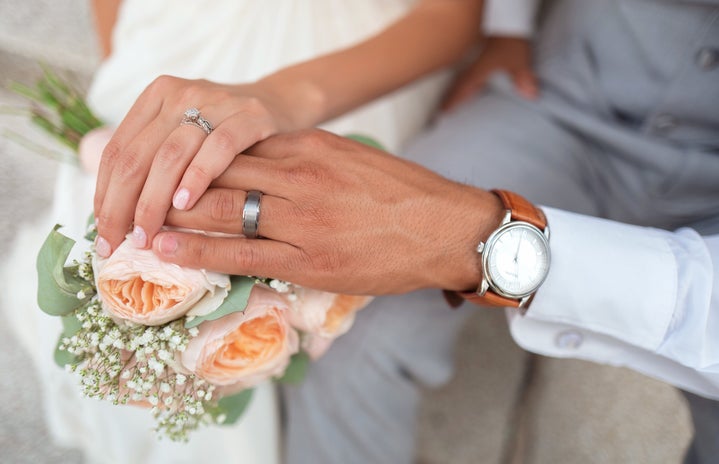Ever wondered why you take on your father’s name and not your mother’s? Ever wondered why your mother leaves her family and her family name after her marriage? Ever wondered why men make all the important decisions in your house? Ever wondered why women are “expected” to wash dishes and do laundry while men make money? These are the different forms of patriarchy running in our Indian families. But have you ever wondered when it all started? How was patriarchy introduced and why? The history of India is important to trace the roots of patriarchy in Indian culture.
In the past, India was predominantly matriarchal; however, patriarchy was introduced gradually to India mostly by foreigners. For example, the Greek invasion of India in 327 BC led to the cultural exchange between the matriarchal Indian culture and the patriarchal Greek culture. Then came the Islamic invasion which enforced patriarchy throughout the country for centuries. After Islamic rule, women were subjected to domestic servitude. Historically, most of India was ruled by the Mughal emperors. Many Mughal kings actively patronized prostitution, and often abducted women and forced them to be either their wife or concubine. The British rule brought its own patriarchy to the subcontinent. At the time, European society was not as egalitarian as it is today, thus the status of women did not improve under the British. After independence, many people started actively working to reverse this colonial landmark of patriarchy, but unfortunately, no major change was witnessed.
Indian marriages are based mostly on religion. India is one of the most religiously and ethnically diverse nations of the world with some of the most deeply religious societies and cultures. Religion is the center of everything in India. According to the Religion-Census of India, “98.7% of the Indian population is religious.” Because of its diversity, the marriage systems in India are different from the rest of the world. They’re heavily dependent on religion. The most practiced and oldest religion in India is Hinduism. According to Hindus, a marriage is a sacred ritual. They believe that everyone should get married at one point in their lives. Most Hindu marriages are arranged by their parents. The bride and groom rarely have a choice in choosing their own partners. The marriage is finalized by looking at the horoscope of a person along with their financial status, educational qualifications (which are higher for men and almost none for women), societal reputation and mainly caste. After a marriage, a woman is forced to leave her job and expected to do all the household chores and serve her husband and in-laws for the rest of her life. A woman has to go through significant changes after her marriage and is expected to treat her husband like God, whereas men can live their lives on their own terms. Women are also forced to fast on religious days for their husband’s well-being, but men are exempted from all these superstitious beliefs. Even though Hinduism is practiced on a larger scale, India has more Muslim population. And in Islamic culture, the case is even worse. In Muslim community, child marriages are a part of normalcy. The bride isn’t even allowed to see her husband before marriage and is married off to a total stranger. And ironically, divorce is almost illegal in Indian marriages. The divorce is said to bring shame to the family and is therefore prohibited. According to the US News & Report, “95% of Indian marriages are arranged,” and according to a BBC Report, “the divorce rate is only 1% in India.” Due to this, there has been a significant increase in mental illnesses, marital rapes, domestic violence and intra-marital affairs in the last 30 years.
Patriarchy runs so deep in Indian marriages that every decision is made by men for their wives including major decisions like leaving jobs and having a child. Women are literally treated as servants. They aren’t supposed to have a voice of their own, they aren’t allowed to wear an outfit of their choice, they can’t spend money without their husband’s permission and they’re not even allowed to eat before men. Not only this, India is a patrilineal society, meaning that property and title are inherited only by male lineage. Men continue to enjoy the privileges like completing their education, building up their careers, choosing their own brides, getting away with domestic violence and intra-marital rapes and controlling their wives that come with this patriarchal culture. Will this ever change? Mahatma Gandhi is a very respectable historical figure in India. He believed in the equality of all genders, and even promoted feminism to a great extent. And yet, his influence couldn’t change the mindsets of Indians. Why is that the case? The answer is simple: according to The Times of India, “due to lack of literacy and financial empowerment, vast diversity and poverty, bringing change on larger scales is almost impossible.” But does that mean this can’t ever change? No! This can definitely change if regulated laws are made and followed by the Indian Government and if positive influences, like promoting feminism and female empowerment, are supported by the actors, sports stars and politicians on wider scales.
After 73 years of independence and 70 years of being one of the most democratic countries in the world, is it really a free country? In present day India, women still continue to suffer at the hands of patriarchy. When will this end?! Being a patriarchal and an anti-feminist country is not the worst part of it all: the worst part is that this has been going on for several centuries and no one is willing to change these unjust and irrational systems. This is why patriarchy needs to end, not because of the ancient re-establishment of the matriarchy in Indian culture, but because of the fundamental rights women in India are deprived of on a regular basis. Justice and equality shouldn’t be something to fight for! Things like that must be granted to the citizens of any country from the very beginning irrespective of gender, religious or cultural preferences, sexuality and caste or class, because they’re everyone’s birthrights — like it or not!


